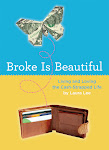The only approach that China and other developing countries will accept is to aim to make consumption rates and living standards more equal around the world. But the world doesn't have enough resources to allow for raising China's consumption rates, let alone those of the rest of the world, to our levels. Does this mean we're headed for disaster?You can read the full article here.
No, we could have a stable outcome in which all countries converge on consumption rates considerably below the current highest levels. Americans might object: there is no way we would sacrifice our living standards for the benefit of people in the rest of the world. Nevertheless, whether we get there willingly or not, we shall soon have lower consumption rates, because our present rates are unsustainable.
Real sacrifice wouldn't be required, however, because living standards are not tightly coupled to consumption rates. Much American consumption is wasteful and contributes little or nothing to quality of life. For example, per capita oil consumption in Western Europe is about half of ours, yet Western Europe's standard of living is higher by any reasonable criterion, including life expectancy, health, infant mortality, access to medical care, financial security after retirement, vacation time, quality of public schools and support for the arts. Ask yourself whether Americans' wasteful use of gasoline contributes positively to any of those measures.
Other aspects of our consumption are wasteful, too. Most of the world's fisheries are still operated non-sustainably, and many have already collapsed or fallen to low yields — even though we know how to manage them in such a way as to preserve the environment and the fish supply. If we were to operate all fisheries sustainably, we could extract fish from the oceans at maximum historical rates and carry on indefinitely.
The same is true of forests: we already know how to log them sustainably, and if we did so worldwide, we could extract enough timber to meet the world's wood and paper needs. Yet most forests are managed non-sustainably, with decreasing yields.
Instant Pot Christmas Roast
6 years ago






